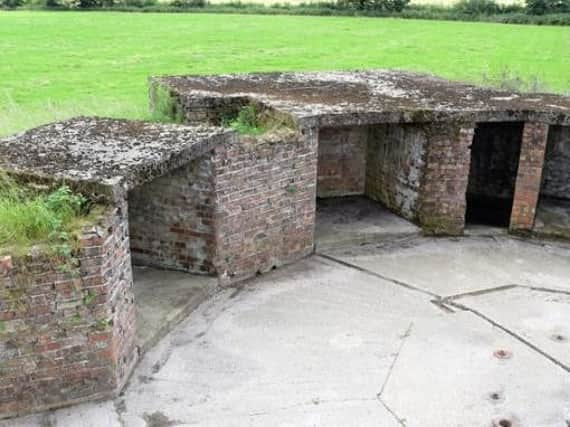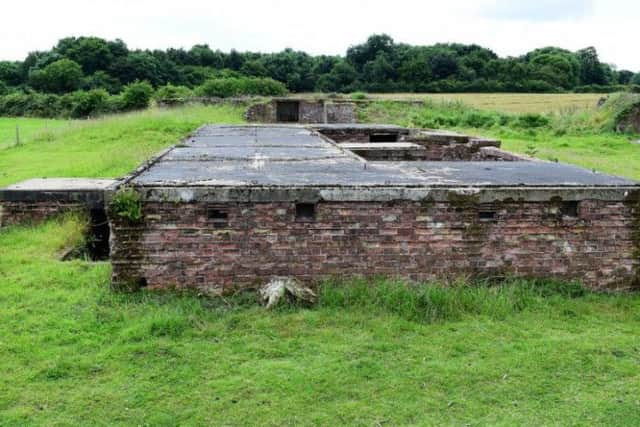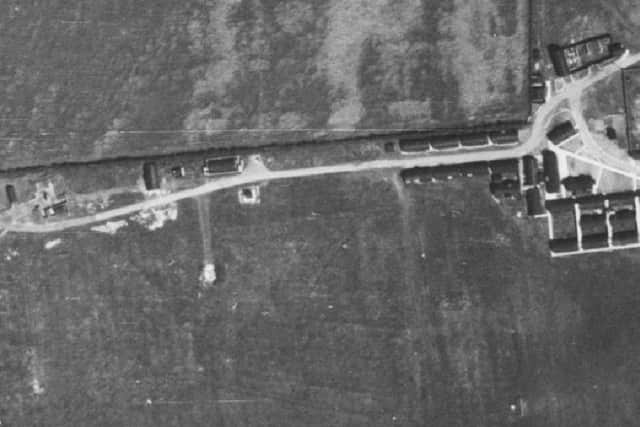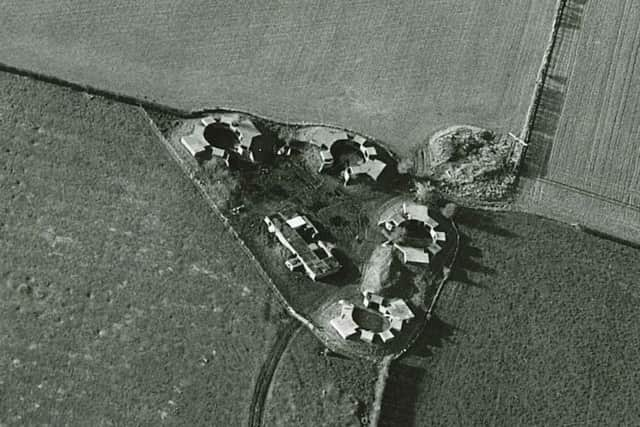This World War Two gun battery was hidden on a Yorkshire farm for more than 70 years


Oliver White discovered the remains of a four-gun anti-aircraft battery that had once targeted Nazi bombers when he took on the tenancy for Butt Farm, near Beverley.
Concealed by overgrown foliage, it had been abandoned since the 1950s and was surrounded by the remains of wartime Nissen huts that had serviced the battery.
Advertisement
Hide AdAdvertisement
Hide Ad

Now, Oliver and local history expert Dennis Chapman have cleared the site, opened it up for tours and are bidding for financial support from Historic England for further restoration work. Their efforts have revealed the four gun emplacements and a semi-sunken command post, and it's now been listed as a scheduled monument.
The battery will be open to visitors in September as part of the Heritage Open Days festival and the White family hope that it will become a tourist attraction on their farm, which they also run as a caravan and camping site.
Although around 60 of Britain's 1,000 anti-aircraft batteries remain partially or fully intact today, Dennis believes that Butt Farm's location and role were unique at the time.
Advertisement
Hide AdAdvertisement
Hide Ad

His attempts to research the operational history of the base and trace the army personnel who worked there - around half of whom were women - have drawn a blank, and it almost seems to have disappeared from local memory. Nobody knows exactly why Butt Farm was chosen for air raid defence.
"After the 1950s, it was left to rot for 70 years. Oliver White arrived as a new tenant farmer four years ago and knew something was there - but it was badly overgrown.
"We've had interest from Historic England and we hope to recreate it - we'll reinstate the drainage, waterproof the roof, that kind of thing, to make it better for visitors. The location is quite remote but we want more people to join us for tours.
Advertisement
Hide AdAdvertisement
Hide Ad"It was the only battery in the Beverley area but very few people know of its existence."


There were around 50 gun and searchlight posts on the other side of the Humber to protect Hull from Luftwaffe squadrons flying over the North Sea, but Butt Farm is by far the most northerly, and it appears somewhat of an anomaly.
Dennis's theories are either that it was deliberately sited there to target pilots returning from raids on cities further inland when they were not expecting an attack, or that it was designed to shoot at bombers based in occupied Norway, who arrived via Flamborough Head and may have used Beverley Minster as a navigational landmark.
Advertisement
Hide AdAdvertisement
Hide AdAround 300 staff were based at Butt Farm, with 11 manning each gun on a shift system. From 1942, women were allowed to join the army's Auxiliary Territorial Service and were sent to the battery crews, although they were restricted to behind-the-scenes jobs and did not operate the gunnery. There was a canteen, accommodation, stores and a mess. Recruits came from all over the country.
"It was a mixed battery and around 50 per cent of them were women. The site was around 300 yards from the farm buildings, and it was meant to blend into the farm to be inconspicuous from the air."
After the war, the Nissen huts reverted to farm use, and gradually fell down or were demolished. The last of them was destroyed in a winter storm only last year.
Dennis has tried to track down surviving Butt Farm crew or their relatives, but nobody has come forward. It's also difficult to say how much of an impact the battery had on the war effort.
Advertisement
Hide AdAdvertisement
Hide Ad"We can't attribute any German aircraft that were shot down to the battery. In reality, the anti-aircraft guns were not that successful. Their main purpose was to disrupt the bombing and to provide reassurance to boost morale. They may have caused some damage to planes but they didn't shoot many down.
"People who visit are pleased to see it visible again. We have a lot of enthusiasts, but also people who know next to nothing about the batteries. Very little is known about this part of the war - afterwards the posts were all abandoned and the people who served on them often kept quiet about their experiences, it wasn't something they wanted to recall."
Heritage Open Day tours of Butt Farm anti-aircraft battery will run on September 13, 14 and 15 at 10am and 2pm. Places must be pre-booked and group sizes are restricted to 12. Contact [email protected] to reserve a place.
There is no public access to the battery site but visits can be arranged privately by contacting the farm.